Writers get asked a lot of questions. They have an uncommon job and an uncommon pursuit. So I decided to go through some of the most frequently asked questions and provide some general answers, sprinkling some of my own answers in, too.
Where do you get your ideas?
This is the most common question writers get asked, and often the answers aren't that amazing. Ideas come from everything--interesting facts, song lyrics, life experiences, people-watching, movies, other books. Sometimes I get ideas sitting in Sunday school class. I've gotten ideas listening to college lectures. A lot of the time I get them because I'm sitting down with a paper brainstorming; I force myself to come up with ideas. Some writers get them from dreams (I never have). Sometimes inspiration strikes out of the blue. Most of the time, for me, it comes because I'm working hard at coming up with them. A lot of times I think about what others have done in storytelling, and how I can twist or morph that in a way that's new or interesting or surprising. I might try to think of a way to top it.Askers will almost always get a more interesting answer if they are a bit more specific, "Where did the idea for this book come from?" "How did you come up with this character?" "Such-and-such was my favorite part, how did you come up with the idea for that?"
So I have this great book idea--how about I tell you it, and we can split the money 50-50?
You have a great book idea. Awesome. Go you! No, really, it's cool you have a concept that you are excited about.The reality is, though, most writers have hundreds of ideas. For a lot of them, the hard part isn't coming up with an idea for a novel, it's choosing which to pursue. Coming up with an idea for a book is just a tiny fraction of the process, and takes almost no work in comparison to the actual outlining, writing, and editing, not to mention publication and marketing. I don't expect most people to know this--most people don't work in the writing industry, but 50-50 is not even near close to fair in that offer. It's more like 99-1, or even 100-0, unless you are going to hire the writer to write your book (that's called ghost writing).
I understand that people ask this question because they don't know any better. It doesn't help that there are all these myths lying around that writers sit around until they get a good book idea, write it all down in a month (or less), and are done. It's not like that.
Also, keep in mind that a lot of times, the "great book ideas" we hear aren't . . . really that great. A lot of people who ask this don't actually read much fiction. Movies don't count. The movie industry is limited by needing a big budget and therefore needing to appeal to a mass audience (so they earn a profit). Fiction writing isn't, or at least not to the same degree. As a result, you will find way more cool ideas in fiction writing than in movies. Cryosleep stories? Read dozens of those. Westerns mixed with science fiction or space? The writing world has an entire genre for that stuff.
Of course, I'll always answer politely to this and wish the asker the best. But nothing is going to come out of it.
How much money do you make? / Are you rich?
Almost no one who goes into writing does it for money. Unless you are J.K. Rowling, Stephenie Meyer, Stephen King, or John Green, you are probably not going to get rich. And from what I've seen, there's no shortage of bestselling writers who have another source of income either.
It's very rare to get rich off writing. And it can be difficult to make a living in the writing industry at all. People who write don't do it for money, they do it for love.
How much a writer makes can vary wildly. If they self-publish, the costs to make the book come all out of their own pockets, which means it's completely possible to be in the negatives. Traditional publishing shouldn't cost you anything, but keep in mind that the stores, editors, and agents all take a cut, so the writer makes a smaller percentage of each book sold.
But as I mentioned earlier, some writers do get rich. Rowling has made over 2 billion dollars in books. She's the first to ever do that. But again, she was never in it for the money.
Unless you are talking to a ghost writer, a fiction writer is always paid more in praise and recognition than in bills. A lot of people think praise and fame equate to money. They don't. There are bestselling writers who have day jobs. There are published writers who work in grocery stores. Even if they are rich, like J.K. Rowling, they are still paid more in praise than in dollars.
Some of us are "rich" in praises. Perhaps that's a writer's currency.
Self-publishing: What it is, Who it's for, and How it Works
Traditional Publishing: What it is, How it Works, and How to Do it
It's very rare to get rich off writing. And it can be difficult to make a living in the writing industry at all. People who write don't do it for money, they do it for love.
How much a writer makes can vary wildly. If they self-publish, the costs to make the book come all out of their own pockets, which means it's completely possible to be in the negatives. Traditional publishing shouldn't cost you anything, but keep in mind that the stores, editors, and agents all take a cut, so the writer makes a smaller percentage of each book sold.
But as I mentioned earlier, some writers do get rich. Rowling has made over 2 billion dollars in books. She's the first to ever do that. But again, she was never in it for the money.
Unless you are talking to a ghost writer, a fiction writer is always paid more in praise and recognition than in bills. A lot of people think praise and fame equate to money. They don't. There are bestselling writers who have day jobs. There are published writers who work in grocery stores. Even if they are rich, like J.K. Rowling, they are still paid more in praise than in dollars.
Some of us are "rich" in praises. Perhaps that's a writer's currency.
Are you famous?
Most writers aren't famous. If you have to ask that question, I think it tells you something. ;)
How did you come up with your book cover?
Unless the author published their own book, they didn't come up with their own book cover. In fact, many writers have zero say in their book cover. That's handled by the publisher. Traditionally published authors just pray it's not ugly.
If they are lucky, it will make a potential reader look twice at it and pick it up.
If they are lucky, it will make a potential reader look twice at it and pick it up.
Is your book going to be made into a movie?
Probably not. A movie is a whole different beast. Many bestselling authors sell movie rights, but very, very few of them get made, and if they do, there is no promise that they'll be any good. It's a very complicated process.
I completely understand the yearning to see a book made into a movie. I yearn for it regularly. But keep in mind, it was made to be a book. If it was made to be a movie, it'd be a screenplay.
As a writer, I'd rather see my work as a book than a movie, so I write stories, not screenplays.
I completely understand the yearning to see a book made into a movie. I yearn for it regularly. But keep in mind, it was made to be a book. If it was made to be a movie, it'd be a screenplay.
As a writer, I'd rather see my work as a book than a movie, so I write stories, not screenplays.
How do I get published?
You want to get published--great! I've actually written several blog posts on this, so I won't repeat it here:
Self-publishing: What it is, Who it's for, and How it Works
Traditional Publishing: What it is, How it Works, and How to Do it
I also have a post that talks about this here. Often for me it comes from not brainstorming enough or brainstorming the wrong things.
Will you read my book/short story/poem? (Implied: And tell me what you think? Often expected: for free?)
It depends on the writer and how busy they are. It also probably depends on how well they know you. I think it's safe to say, the longer the creative work, the less likely the writer will read all of it. It also depends on what the asker wants as a result: A full edit? Criticism? Basic feedback?
I've seen some submissions piles, and I can usually tell at what level someone is writing within the first five pages of a manuscript (not exaggerating). If I can see a lot of ways the writer can grow by that point, I'd rather point them out after five pages than read the entire story. Admittedly, I don't get the full plot structure for a novel, but I feel like for the writing masses in general that I can often gauge the expertise of the plot based on the way the first five pages are handled.
Outside of the work I already have, I basically never read others' stories. I'm just too busy and need to spend that time somewhere else. I put writing tips on my blog; hopefully they help people gauge their own work and give them something to work on.
Other writers aren't like me. Just keep in mind that the more "professional" and career-laser-focused a writer is, the less likely that person is to read your work, and read it for free. It's not that they are stuck-up, it's that they are so dang busy and their attention is needed in so many places. Look at Brandon Sanderson. He has monster-sized books coming out every year, runs a podcast, teaches a class at BYU, judges Writers of the Future (the biggest speculative short fiction contest in the world), blogs, holds book signings and book tours around the world. I would imagine that for him, every second counts.
Other people have all the time in the world, and that's fine. People are allowed to have different lifestyles. They are more likely to read your work.
When will your (next) book be out?
It's awesome that people are interested in when a writer's next book comes out. Obviously this answer varies. Some writers may have a specific release day already, and some writers are wondering when they are going to finish writing the book themselves, let alone when it will be released.
Writing and publishing a book will take months, and it's not uncommon for it to take years. That's just the way it is.
As a lot of you know, I'm still working on mine. It has no near release date.
What is your book about?
Again, obviously the answers vary. A lot of writers have specific or canned answers, because they've prepared a pitch (which they should). Some writers haven't really prepared that yet (me). My vague answer is that I'm writing a YA fantasy (kind of paranormal?) book that deals with angels and demons, but not really in a religious way, more like they are creatures. To escape the demons, the prince has to run away and hide among us humans. That's sort of the set-up. There is some humor, and mystery, and drama, and action, and romance. It will sound more cool when it's done, and I have prepared a pitch for it. That's another point I should bring up. A lot of stories can sound dumb out loud (Lord of the Rings is a great example), unless the writer has already come up with a great pitch.





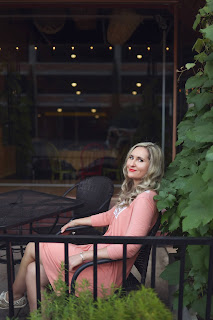
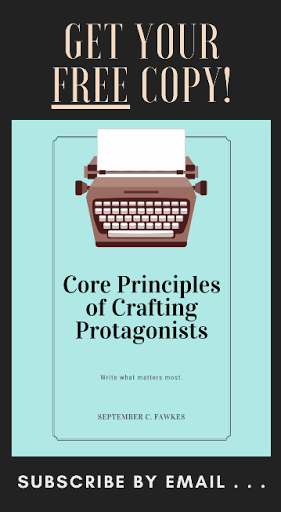
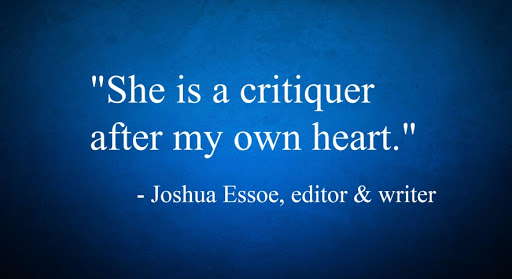

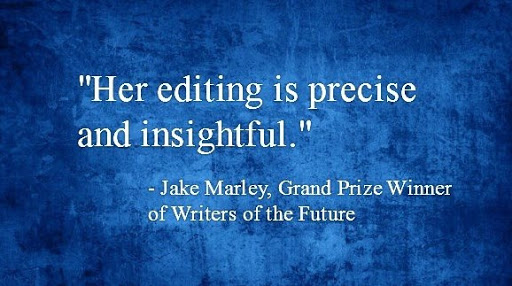

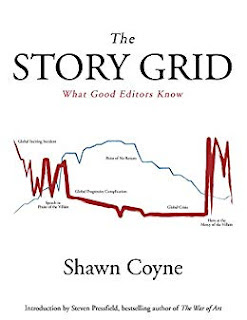




0 comments:
Post a Comment
I love comments :)